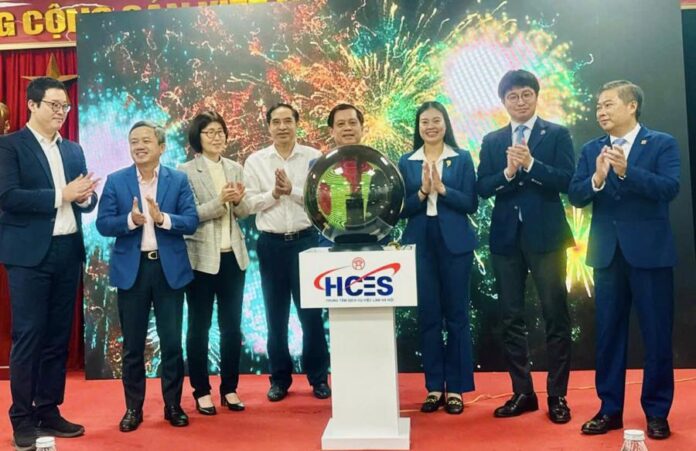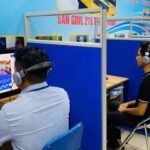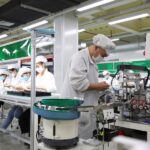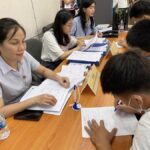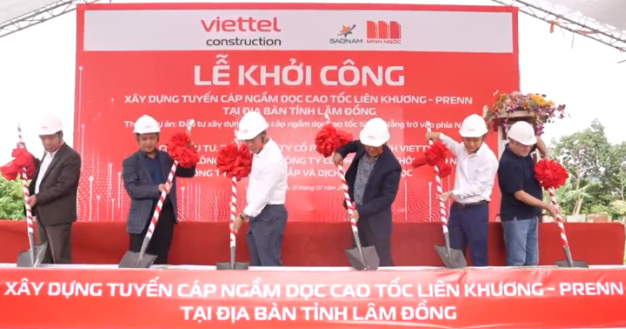On November 8, the Overseas Labor Center (Ministry of Labor, Invalids, and Social Affairs) coordinated with the Department of Labor, Invalids, and Social Affairs and related units to organize a job fair for EPS workers and IM Japan trainees returning home. Thousands of job opportunities with attractive salaries are offered to workers.
MOST OF THE RETURNING WORKERS HAVE FOUND SUITABLE EMPLOYMENT
Attending and speaking at the program, Deputy Minister of Labor, War Invalids, and Social Affairs Nguyen Ba Hoan emphasized that supporting and introducing jobs to overseas workers is a consistent policy of the Party and State.
The aim is to provide workers with job opportunities and income to stabilize their lives after returning, effectively integrating them into the domestic labor market. At the same time, this also helps foreign-invested enterprises in Vietnam, including those from South Korea and Japan, recruit workers that match their job requirements.
“This is also a direction to train high-quality human resources. After completing their contracts abroad, these workers will join the domestic labor market, contributing to the country’s economic and social development,” said Deputy Minister Nguyen Ba Hoan.
According to the Deputy Minister, over the past 12 years, the Ministry of Labor, War Invalids, and Social Affairs has coordinated with relevant agencies and localities to organize nearly 90 job fairs and transactions, attracting the participation of nearly 2,000 enterprises with many suitable job positions matching the professional qualifications, techniques, and dedicated work styles that the workers have cultivated and accumulated during their time working abroad. Through these efforts, over 17,000 workers have been connected and provided with job counseling.
“As a result, most Vietnamese workers returning from South Korea and Japan have found suitable jobs. Many have successfully started their own businesses,” said Deputy Minister Nguyen Ba Hoan.
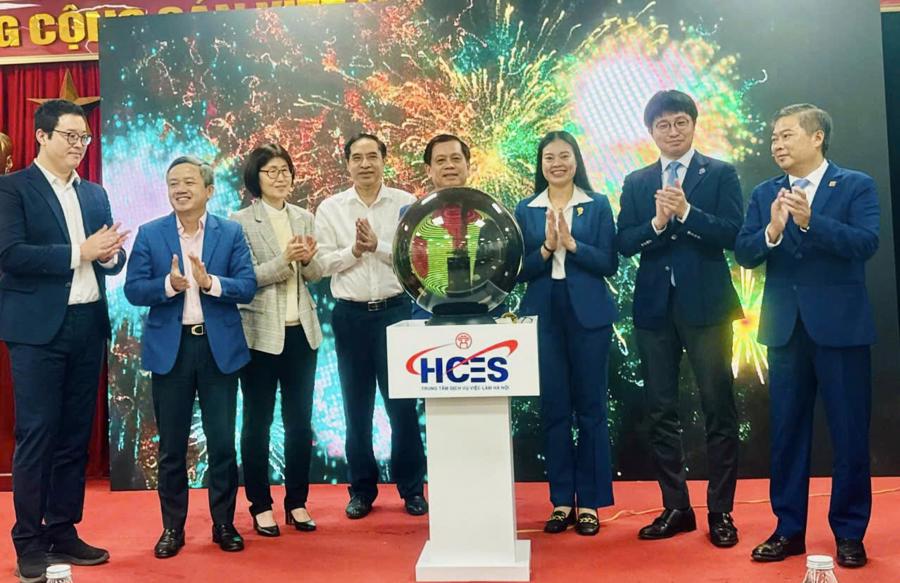
From the market receiving a large number of Vietnamese workers, Mr. Ishii Chikahisa, First Secretary of the Embassy of Japan in Vietnam, said that recently, the number of Vietnamese living and working in Japan has increased rapidly. As of June this year, this number has, for the first time, exceeded 600,000 people. “This is the second-largest foreign community in Japan,” said Mr. Ishii Chikahisa.
In addition, according to the Vietnam Migration Profile 2023 published by the Ministry of Foreign Affairs of Vietnam and the International Organization for Migration at the end of last month, more than 80,000 Vietnamese people went to Japan to work last year. Along with the number of Vietnamese workers going to South Korea and Taiwan (China), Vietnamese workers in Japan account for a large proportion of the total number of overseas workers.
“The Japanese government and the Embassy will continue to strive to create an environment that makes Japan an attractive destination for Vietnamese workers. Vietnamese people will also feel happy working here,” shared Mr. Ishii Chikahisa.
According to him, the establishment of the employment system for skill development in June this year, moving towards replacing the technical intern system, aims to protect human rights and further improve the interests of foreign workers, including Vietnamese workers, in Japan. This is a consistent policy.
Regarding South Korea, Mr. Baek Seok Hyun, Labor and Employment Attaché, Embassy of the Republic of Korea in Vietnam, said that South Korea’s foreign labor intake quota has been continuously increasing in recent years. Previously, it was only about 60,000 per year for 16 countries. In recent years, it has increased to 110,000 people and is now 165,000. The quota for Vietnamese workers has also been adjusted accordingly. “The South Korean government highly appreciates the contribution of Vietnamese workers to the development of the Korean economy,” emphasized Mr. Baek Seok Hyun.
EMPHASIZING JOB CREATION TO ENCOURAGE WORKERS TO RETURN HOME
As the unit in charge of implementing labor dispatch programs, Mr. Dang Huy Hong, Director of the Overseas Labor Center (Ministry of Labor, War Invalids, and Social Affairs), said that so far, after 20 years, more than 150,000 people have been dispatched. Among them, about 140,000 workers were sent to work in South Korea under the EPS program, and nearly 9,000 workers went to Japan for skill training under the IM Japan program. Every year, about 7,000 workers return home after completing their contracts.
According to Mr. Hong, to utilize this skilled, technically equipped, and industrious workforce, it is necessary to organize annual job fairs to help workers share experiences and effectively connect the network of returning workers who have successfully started their own businesses.
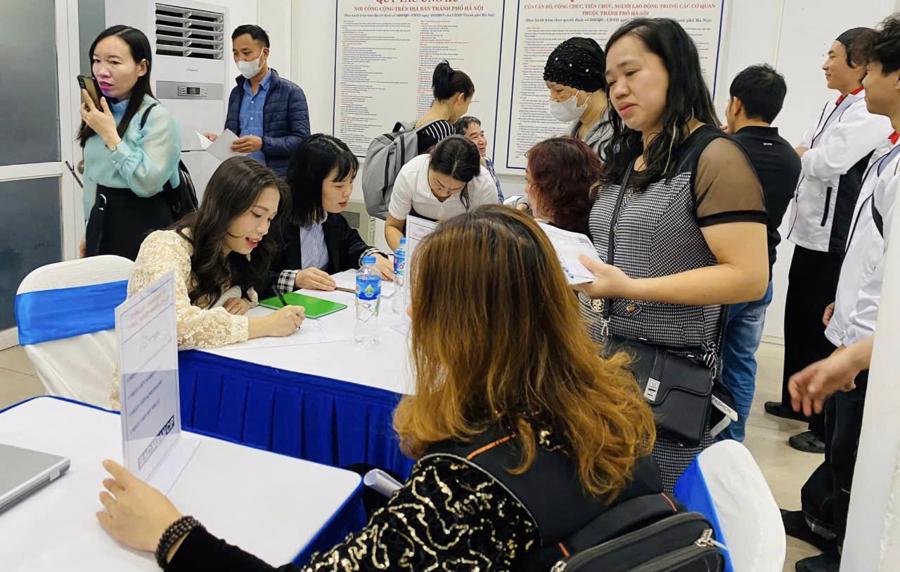
From the perspective of the locality, Mr. Nguyen Tay Nam, Deputy Director of the Hanoi Department of Labor, War Invalids, and Social Affairs, affirmed that, along with efforts to solve domestic employment issues, Hanoi also pays attention to creating job opportunities by sending workers abroad.
In this regard, the implementation of the program to dispatch workers to work in South Korea and Japan under the EPS and IM Japan programs has brought good job opportunities, stable incomes, improved vocational skills and foreign language proficiency, and accumulated experience and social knowledge for the workers.
Mr. Nam informed that after completing their five-year work term in South Korea, nearly 8,000 workers returning home have become a high-quality workforce, helping spread industrial work styles and labor discipline and serving as a cultural bridge between Vietnam and other countries.
“Job counseling and support for this group contribute to providing skilled human resources for the labor market, helping workers access enterprises, especially those with investment capital from South Korea and Japan in Vietnam. At the same time, it encourages and motivates workers to return home after their contracts end, reducing the rate of illegal residence abroad,” emphasized Mr. Nguyen Tay Nam, Deputy Director of the Hanoi Department of Labor, War Invalids, and Social Affairs.
Statistics from 2020 up to now show that the Hanoi Department of Labor, War Invalids, and Social Affairs has organized four job fairs, attracting the participation of 222 enterprises with 18,565 recruitment targets. Through these events, nearly 6,000 workers have been provided with job information and counseling, and nearly 1,000 EPS workers and IM Japan trainees have been supported in finding employment.
According to the Hanoi Center for Employment Services, this year’s fair saw the participation of 45 enterprises with 1,337 recruitment targets. Among them were 19 units with investment capital from South Korea and Japan, offering positions such as production management, workshop management, engineering supervision, translation and interpretation, electronic production workers, mechanical technicians, and machine operators.
Many enterprises with investment capital from South Korea and Japan have diverse recruitment needs and offer attractive salaries, ranging from 5 to over 15 million VND, which are entirely suitable for workers returning from South Korea under the EPS program and technical trainees returning from Japan under the IM Japan program.
The Future of Work: Navigating the Labor Market in the Fourth Industrial Revolution
The Fourth Industrial Revolution has ushered in a plethora of new industries and, with it, a surge in demand for highly skilled workers to facilitate this transition. Today’s society no longer solely values academic qualifications but places a premium on vocational skills and competencies that meet the needs of these emerging industries.
The Struggles of Young Job Seekers: Overcoming Employment Challenges
Lack of experience and competition from seasoned workers are significant challenges for young job seekers in today’s market. The ever-growing demands for academic credentials and certifications, coupled with skill gaps, further hinder their prospects. These barriers collectively make it a daunting task for youth to secure employment.

